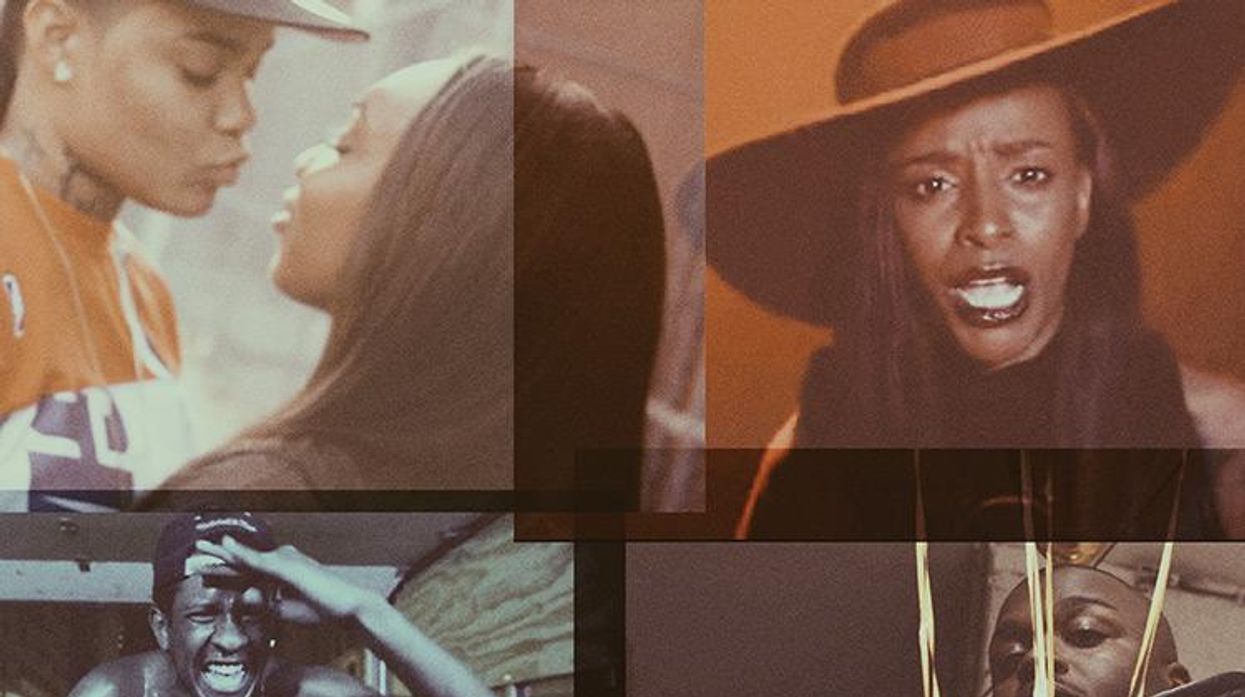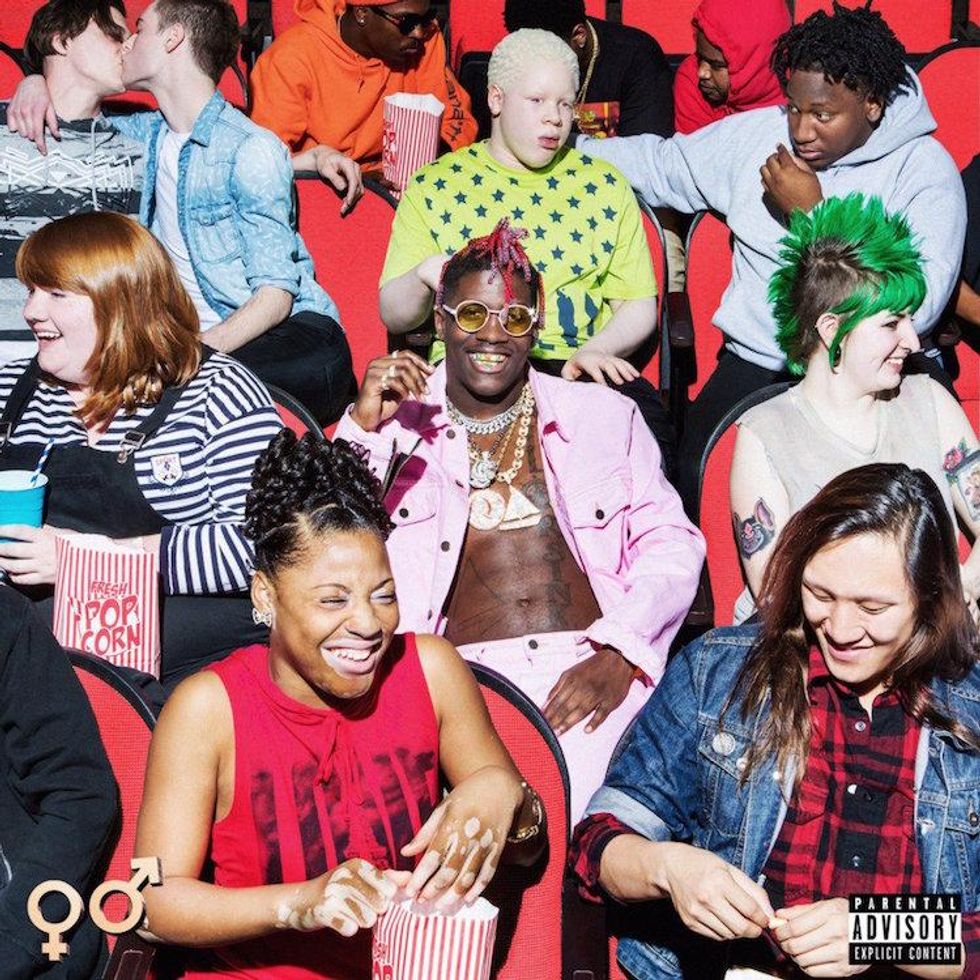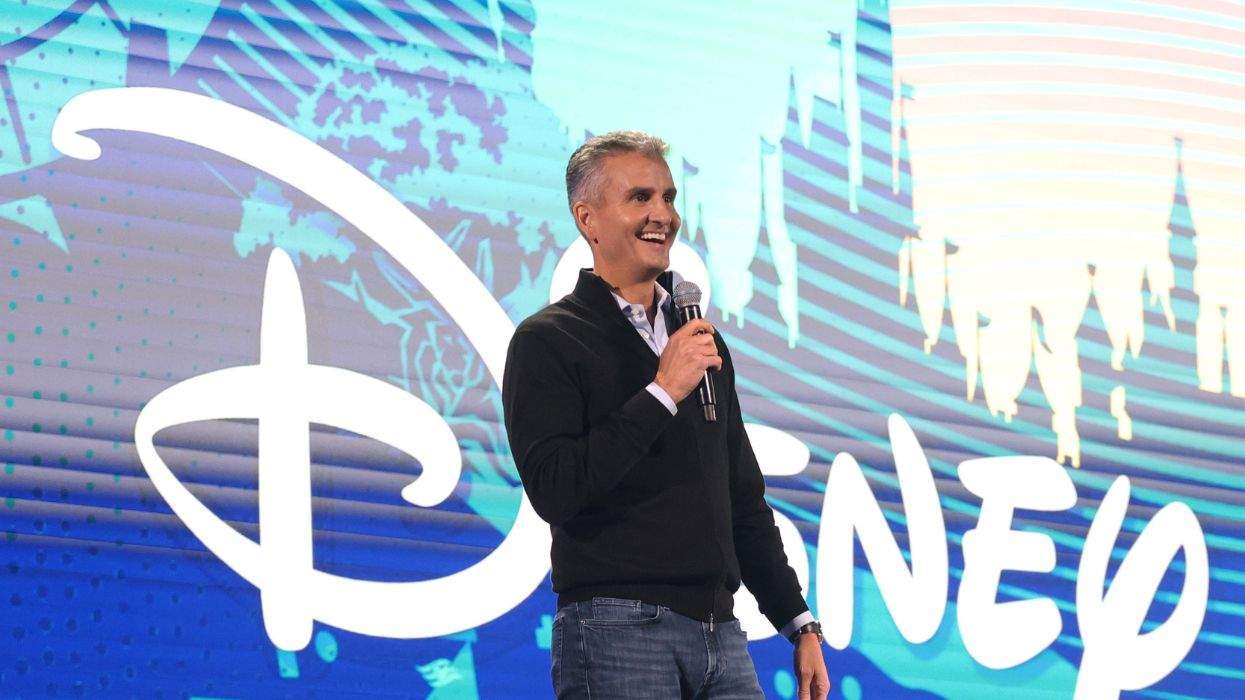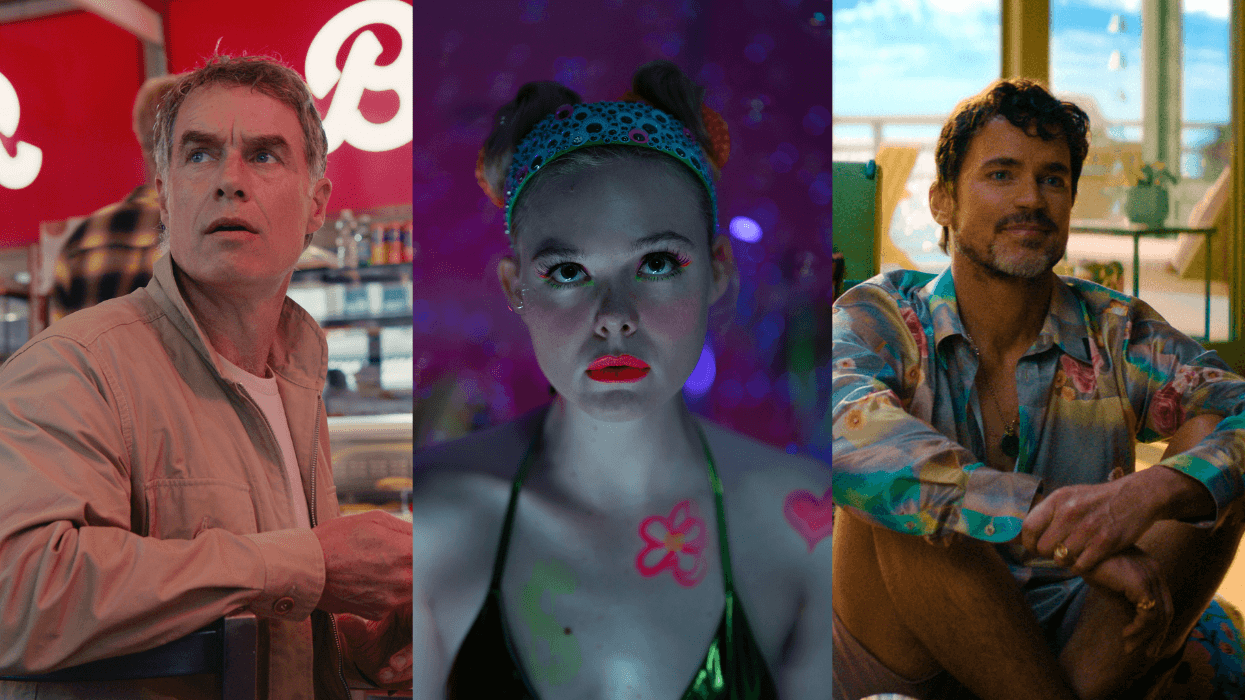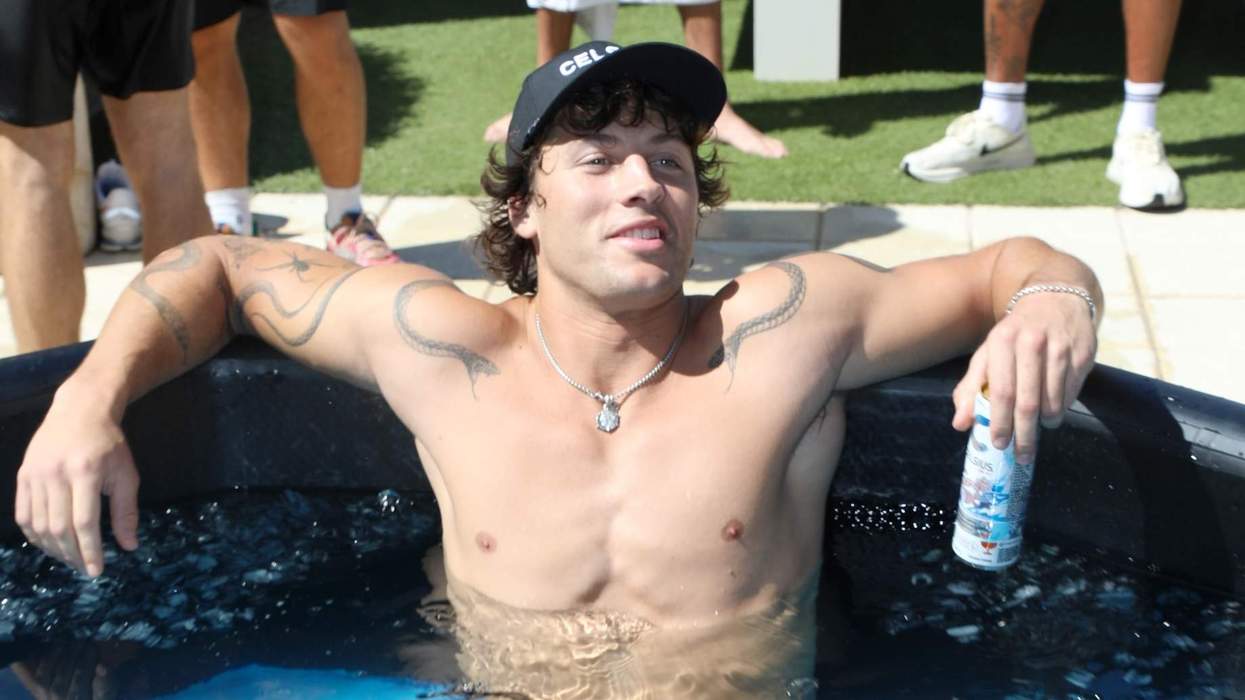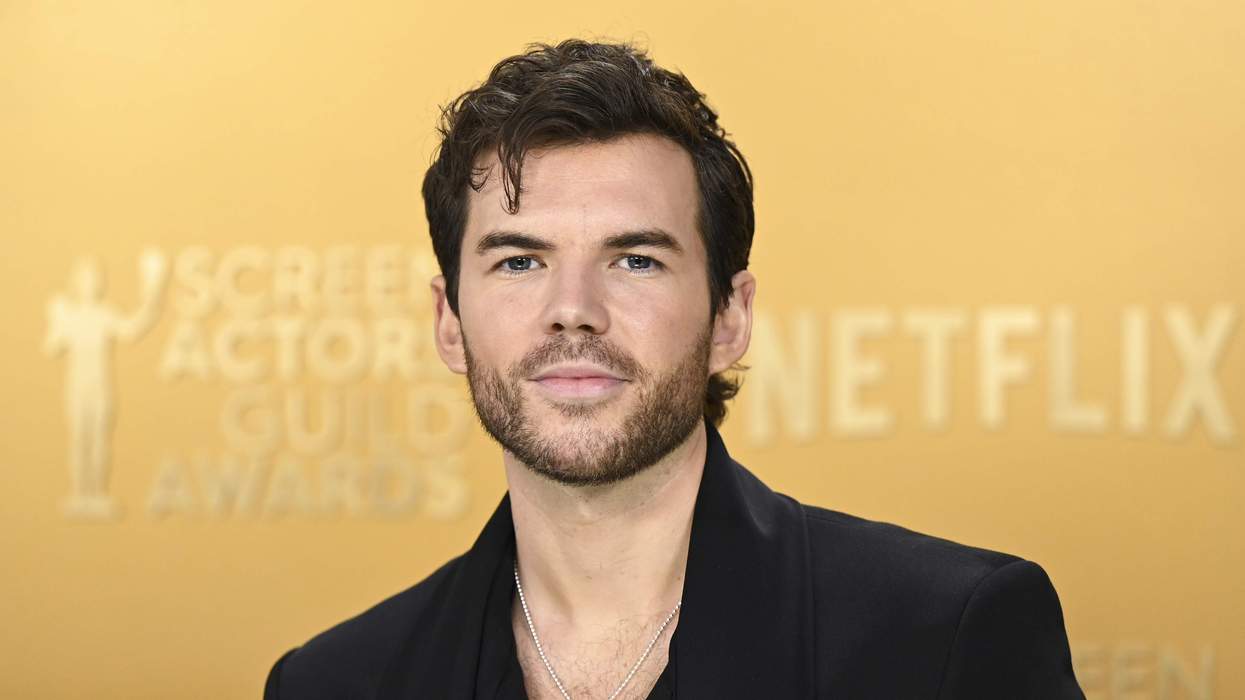In the first decade of this century, seemingly against the odds, a gay hairdresser-turned-rapper called Caushun garnered attention after landing a deal with Baby Phat Records. Just a few years earlier, GLAAD had launched a campaign against Eminem's 2000 album, The Marshall Mathers LP, in which the musician had rapped about stabbing gay people (lyrics the singer claimed were taken out of context). The arrival of a boldly flamboyant queer rapper, then, seemed timely. "He's a b-boy with a poodle named Wesley and an apartment with ornate pillows with silk flowers on them and beautiful vases filled with giant lilies," gushed The New York Times. For The Advocate he was "gay hip-hop's first mainstream hope." The release of Caushun's debut album, Shock and Awe, was planned to coincide with New York's 2003 Gay Pride. "I kind of want to take the word fag and make it like, 'Oh, child, what's the big deal,'" he told Newsweek. It all seemed too good to be true--because it was. No album would materialize. Caushun, it turned out, was a sham--the made-up persona of Ivan Matias that began as a prank call to radio DJ Funkmaster Flex and snowballed from there. Matias didn't confess until 2007, and Caushun's false promise is still waiting to be realized.
Ten years on, hip-hop has never been more influential. Fashionably stark Dior Homme posters feature A$AP Rocky, and Honda's nostalgic TV spots for the Civic are synced to Fabolous. As it has become more pervasive, so too has the genre become more progressive, or seemingly so: Miles Parks McCollum, who goes by the moniker Lil Yachty, released his debut album, Teenage Emotions, this spring with two men swapping spit on the cover--surely a first from a major label like Capitol--and new favorites Lil Uzi Vert and Young Thug have an affinity for mixing men's and women's clothing. At the same time, queer hip-hop itself has grown remarkably in the past decade, with artists such as Mykki Blanco, Cakes Da Killa, and House of Ladosha maturing from nightlife fixtures to figureheads of a movement refusing to be contained.
Related | OUT100: Mykki Blanco
But despite these strides, hip-hop and queer hip-hop remain separate, like jigsaw pieces blind to their purpose. An out artist has yet to find commercial longevity in hip-hop (the elusive Frank Ocean, whose R&B-ish stanzas live in a world apart, does not quite qualify), and the culture itself, though superfluously flamboyant, is just as bigoted as it is divided. "Two white men kissing: that's progress, it's inclusive, it's awesome," says Blanco of Yachty's cover art. "But in queer circles, it's problematic in a very take it or leave it kind of way."
At a time when hip-hop has never been more relevant, can the many gaps between the music and its gay listeners be reconciled? Will we ever have an out-and-proud rapper at home in the Top 40?
The LGBTQ community has had little visibility in hip-hop, which first emerged in the 1970s as a distinct subculture of inner-city African Americans in New York's South Bronx. Reflective of the neighborhood, the style--then known as "disco rap"--formed colloquially at street-side block parties, where men, many of West Indian descent, would gather to cap, or verbally outperform each other, in loud, spoken-word brawls. Eventually, beats would be tried, tweaked, and technified. By the late 1980s what we know today as "gangsta rap" had taken shape, with a devious emphasis on fast cars, firearms, and fucking. While hip-hop has gone through book-long iterations, hypermasculinity has remained at its core--especially in its most popular forms, where there's little room for anything else.
Related | Queer Rapper Cakes Da Killa on Finding Self in Music: 'I Was Born Out of the Closet'
"Society hates anything feminine," explains Rashard Bradshaw, a.k.a. Cakes Da Killa. Translated into hip-hop, the Brooklyn rapper says, these complexes create burdens for artists: "A very masculine female rapper can still receive marketability or credibility, but as soon as a man shows any signs of femininity, he's looked down upon."
Musicians like Trina, Lil' Kim, and Nicki Minaj come to mind: fire-mouthed "bad" women who toe the line between aggressive lyricism and highly sexualized gender norms. Cakes calls this the "Barbie doll effect," something he draws inspiration from for his creative persona but also likens to the challenges he faces as a queer hip-hop artist. "So many gay men grow up wanting to play with Barbies and their moms and dads telling them, 'No,' " he says. "When we become adults, we worship and want to dress up these female figures, to a point that we don't think about the queer creatives in our community. We overlook them to focus on the fantasy."
In the 1990s, Stanford threesome Deep Dickollective coined the term "homo hop" as a sort of satirical response to the rampant homophobia in mainstream hip-hop, a product of the music's own ideals as well as the African-American community's inherent identity complexes. "It really goes back to the black church denouncing homosexuality for so long, which largely increased the so-called DL ('down low') scene and self-hate in the gay community," says veteran music publicist Chris Chambers, who has managed communications for the likes of Drake, Future, and Lil Wayne.
Largely underground, Deep Dickollective set the stage for the first real wave of gay rappers in the decade following: people like Cazwell, who--despite arguably being the most commercially successful LGBTQ rapper of the 2000s--claims to have been trivialized outside the gay world. "I have been on radio shows where the DJs treated me like a parody because I rap and I happen to be gay," he says. "In the beginning, I felt like my career was treated like a Saturday Night Live skit."
Related | OUT100: Angel Haze
Along with Cakes Da Killa, queer musicians like Le1f, Zebra Katz, and Angel Haze surfaced a few years later, fueled by Myspace, Facebook, Soundcloud, Tumblr, and blogs. For a time it seemed this wave might be able to transgress its audiences' orientations. In 2012, it was all but impossible to escape Le1f's "Wut" in any public place, queer or not, and a bony Michael David Quattlebaum Jr. was at the center of it all. Beginning as a YouTube character, in glowing cyan eye shadow and a pinned-back low curl, Mykki Blanco (Quattlebaum's alter ego) became the face and voice of this newly visible style of gay rap. Doused in shredded Hood By Air, with a heavily inked chest poking out and two erect middle fingers, Blanco distorted binary representation, presenting a continuous performance that the artist her/himself was constantly rewriting.
But to be successful as a queer hip-hop artist is very different from being successful commercially. Why haven't any of these artists seen crossover success in the way that queer musicians from other genres such as rock, dance, and pop have? Will hip-hop ever have its own George Michael, Sia, or Sam Smith?
The album cover of Lil Yachty's Teenage Emotions
Maybe one day, says Azealia Banks. "We do have many commercially successful 'gay rappers,'" she says. "They just don't say they're gay. It has more to do with money than anything." A rapper from Harlem, Banks is bisexual and has been criticized for trying to sidestep what she deems the "lesbian rapper" label. "The idea is to create a persona that people desire, to be fuckable to as many people as possible," she adds. "If dudes want to be you and women want to fuck you, you win! But the demographic for an openly gay male rapper--who raps about gay sex--is less populated. Gay rappers need to become a bit more clever."
If any LGBTQ hip-hop artist had a sure shot at the mainstream, Banks seemed the one. Her debut single, "212"--a bouncy, electric track backed by DJ Jef Martens's "Float My Boat" and a deluge of obscenities--was a sleeper hit, earning Banks several "of the year" mentions, co-signs by Pharrell Williams and Kanye West, and a recording deal with Interscope and Polydor Records. But Banks would be her own hindrance--her support soured after several homophobic and racist rants on social media.
On May 12 of last year, Katorah Marrero, a young Brooklyn artist who goes by the name Young M.A, released the song "Ooouuu" and it became an instant hit. The track, a sluggishly sexy anthem about getting as much head as money, would earn a double platinum certification from the Recording Industry Association of America, and be covered by artists from 50 Cent to Minaj and The Game. But something strange occurred: Because of Marrero's low voice and use of archetypal hip-hop lyrics, those who had only heard the audio without seeing the artist's video had not realized the rapper was female, much less a lesbian.
Related | Lesbian Rapper Young M.A Nominated for 'Best New Artist' at MTV VMAs 2017
"It's an extremely masculine song," says a marketing executive from a major hip-hop music company unaffiliated with the artist who wishes to remain nameless. "It's about guns and girls--we thought it was a guy! The song was amazing, but it also appealed to the market, those who predominantly listen to hip-hop as their day-to-day: straight men." Did it matter that she was a lesbian? No. As it happens, every major label immediately began serious conversations with Young M.A. "I don't doubt that one day we'll have a gay rapper on the radio," says the executive. "It's not about changing someone to fit in--it's about finding someone with the right quality of music people want to listen to." Blanco's take on M.A is a little less optimistic: "Her persona already exists within the machismo of hip-hop. She's a talent, but her identity politics make her a non-threat."
The adage that change takes time is a tired but timeless truth: The legalization of same-sex marriage and the election of the first black president were both days that many thought would never come. Considering hip-hop's growing application--and reflection--of everyday life, perhaps we can accept its slow progress. "Each day we grow a little bit closer to opening more doors and exposing more artists," says New Orleans bounce artist Freddie Ross, better known as Big Freedia, who, like Cakes, points to the gay dollar as one possible accelerator: If gay artists, listeners, and the community around them supported one another, change would happen sooner.
Curly-haired with just a touch of peroxide blond, Makonnen Sheran, who performs under the stage name iLoveMakonnen, agrees that "an artist who is gay will always be looked [at] under a microscope until the world starts to recognize everyone as humans regardless of their sexual preference." The singer and rapper, raised in Atlanta and now based in Portland, Ore., hit the top of multiple charts and racked up more than $1 million in sales with his track "Tuesday," which features Drake, before he came out as gay on Twitter earlier this year.
Related | Rapper iLoveMakonnen Comes Out as Gay
Just weeks after his announcement, Georgia rap group Migos described the support he received as "fucked up," but despite that persistent bias, iLoveMakonnen might be the best probe to see how much farther we need to go. (So, too, might be Tyler, The Creator, who surprised fans in July by dropping a new album on which he appeared to come out as queer in fairly uncompromising lyrics--unless he turns out to be another Caushun). "I feel extremely free now," says Makonnen. "As an artist, I'm the same person I've always been and don't expect fans or listeners to look at me any differently," he says. "Good music always rises to the surface."
And what if it doesn't? What if mainstream popularity remains elusive for queer hip-hop artists? Does it even matter? Cakes never sought commercial success until he realized it was a possibility. "If you've been doing something for years, you want a promotion," he says. But he's quick to add, "I do, however, have huge respect for the underground, which needs to stay protected."
It is the underground, after all, where talents like Cakes, Mykki, Banks, Haze, Le1f, and many others have the freedom to develop and the support--if not of a major label, of a loyal fanbase. And it is the underground that produced Deep Dickollective and homo hop and created a space for queer artists independent of hip-hop's mainstream, where they've always existed, albeit in an impenetrable closet. And in 2017, the underground isn't so underground. Earlier this year, spurred by high social-media followings and two critically acclaimed debut studio albums, Cakes and Blanco completed their joint "Stunt Queen" tour across North America. Whether the mainstream takes notice or not, queer rappers are here to stay.


